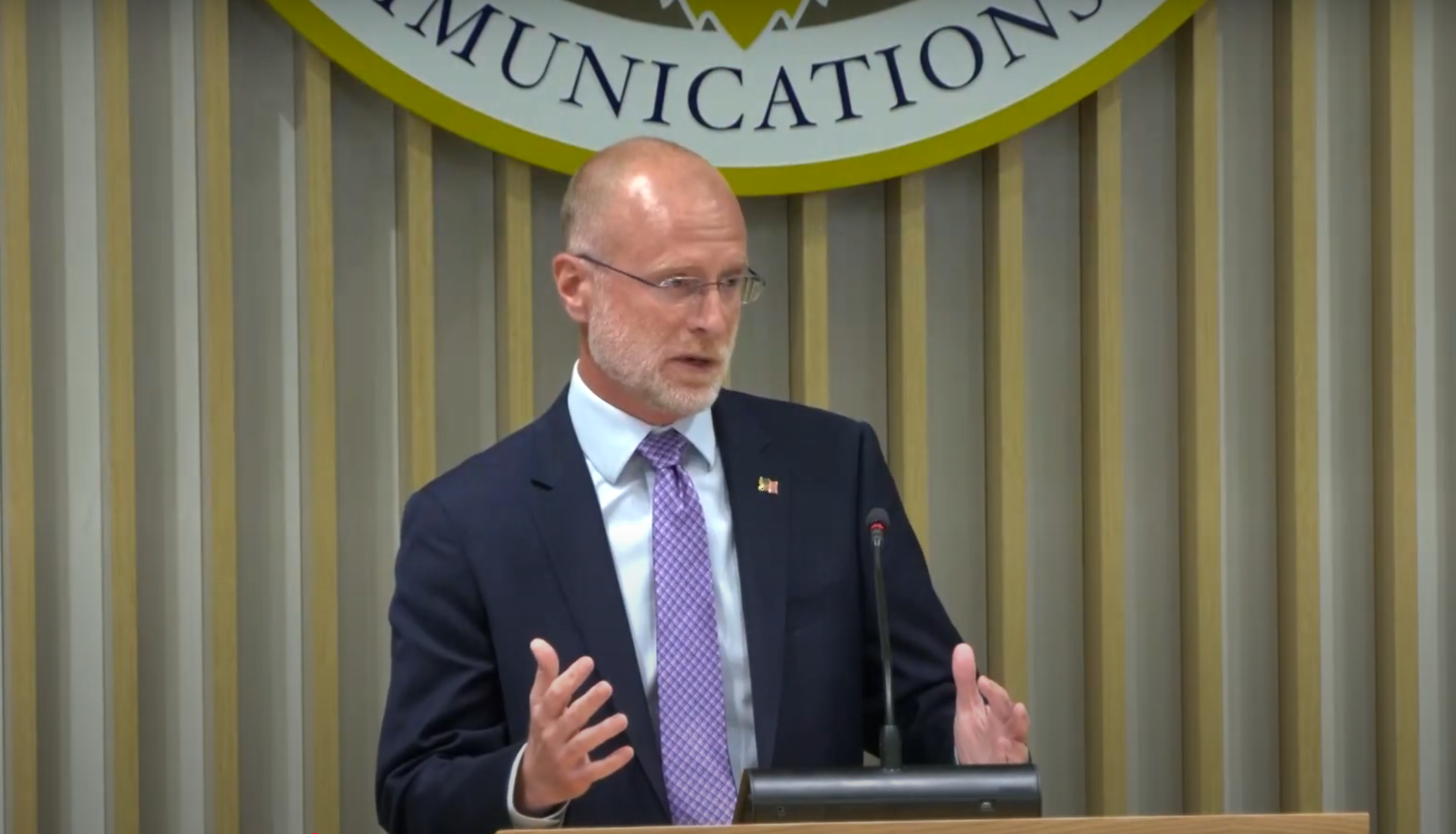Carr: `No Decision' Yet on FCC Fines for Network Affiliates from Complaints About `Public Interest' Violations
Agency could still impose fines or other actions against the network affiliates, the FCC chair said

WASHINGTON—In response to criticism that the Federal Communications Commission has been “threatening” broadcast stations but has not actually taken any enforcement actions against them, FCC Chair Brendan Carr reiterated his plans to vigorously the “public interest standard” for broadcast stations and said that the agency was still investigating the complaints.
During a press conference following the agency’s October Open Meeting, Carr said that the agency was still investigating complaints against ABC, NBC and CBS affiliates for violating the public interest standard in their coverage of President Donald Trump. No decision had been made in those ongoing investigations, but they could still result in fines or other actions, he insisted.
Carr made the comments in response to a question about why the agency had threatened the stations but had not taken action against them. Critics have argued that the FCC is on shaky legal ground in trying to enforce "public interest" standards on broadcast stations. As a result, the agency has avoided taking enforcement actions, such as imposing fines or removing broadcast licenses, that could be easily challenged in court on First Amendment grounds.
“We may very well get” to the point of issuing fines or taking other action against the broadcasters Carr said in response. “Remember, we've got a number of investigations that are underway right now. We have investigations going into NPR and PBS member stations as to whether or not they've been running commercial advertisements rather than permissible identifications. We have DEI inquiries going on [for] a number of providers right now. We have sought comment on complaints that have been filed under various FCC rules that have to do with broadcasters. And again, you'll remember where we are in a process here [that is] 10 months in. At this point, we have a number of investigations that are underway, we are getting documents and information back…”
“So when you look at how you run these things, I'm not sure that there would be [any] sort of enforcement action that would have proceeded to an official document at this point in time,” Carr said. “But we may very well get back there.”
Carr also reiterated his view that “the FCC should be enforcing the public interest standard. That's not a threat. That's just something that Congress has asked us to do.”
The professional video industry's #1 source for news, trends and product and tech information. Sign up below.
Carr also responded to a separate question as to why the FCC has not acted on complaints by the Center for American Rights, against CBS, ABC and NBC stations. The CAR complaint alleged they offered biased coverage of Donald Trump during the 2024 presidential campaign and that the FCC should investigate them for "news distortion."
“That was one of the complaints that I indicated earlier,” Carr said. “…We are ten months in, and you're developing a record, and you're looking at all the facts, you're weighing the record as it develops, we may move forward that [or] we may not. We haven't made a decision there again. Ten months in, I think we're at an appropriate place with the number of investigations and the complaints that we have sought public comment on.”
Carr admitted that only the CBS case has been opened to public comment.
In addition to criticism from Gomez and other Democrats, Carr has faced criticism from some conservatives, such as Senator Ted Cruz (R-Texas) who fear that his investigations could limit free speech in ways that could eventually backfire on conservatives.
George Winslow is the senior content producer for TV Tech. He has written about the television, media and technology industries for nearly 30 years for such publications as Broadcasting & Cable, Multichannel News and TV Tech. Over the years, he has edited a number of magazines, including Multichannel News International and World Screen, and moderated panels at such major industry events as NAB and MIP TV. He has published two books and dozens of encyclopedia articles on such subjects as the media, New York City history and economics.

